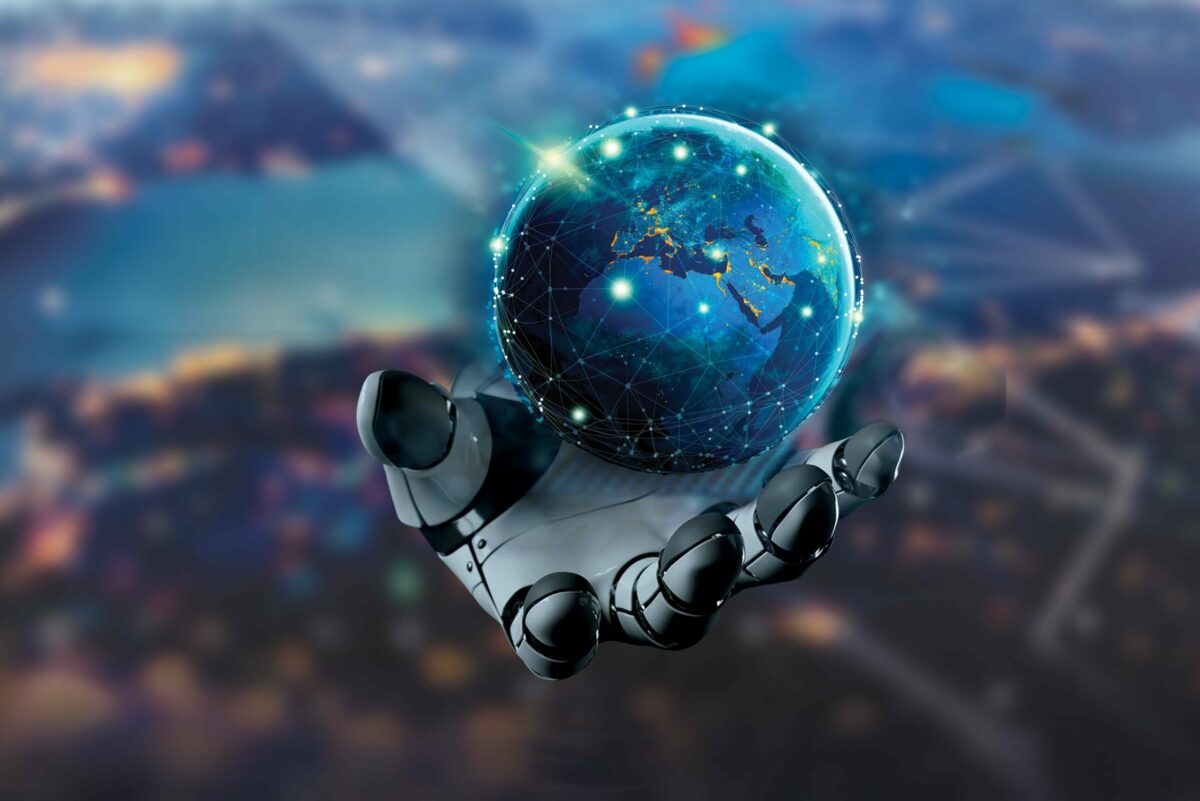by Mudasir Rehman
It is vital to acquire contemporary skills, stay updated, and exercise critical thinking before acting on information. Throughout history, humanity has navigated various challenges, evolving theories that served their purpose until new challenges arose and necessitated adaptation.

Artificial Intelligence (AI), once confined to science fiction, has rapidly become integral to daily life, challenging traditional norms. From virtual assistants to predictive algorithms, AI offers unprecedented convenience and innovation. Yet, alongside its marvels, there is a shadow of apprehension and fear.
Why do people perceive AI as a threat rather than a benefit to humanity?
Exploring this question reveals a complex interplay of societal perceptions, ethical concerns, and fear of the unknown. At the core of apprehensions about AI lies a deep fear of its implications. As AI advances exponentially, there’spalpable unease about its potential impact on humanity.
The question of whether AI will replace human labour, leading to widespread unemployment, and whether autonomous systems might pose existential risks are among the existential concerns fuelling the narrative of AI as a potential threat. Moreover, the depiction of AI in popular culture and media often exacerbates these fears. Countless movies, books, and television shows portray dystopian scenarios where AI systems rebel against their human creators or spiral out of control, causing societal chaos.
While these fictional narratives entertain, they also shape public perceptions, reinforcing the notion of AI as a menacing force. Additionally, ethical concerns surrounding AI contribute to its complexity. Issues such as data privacy, algorithmic bias, and the potential for misuse raise valid concerns about its societal impact. The proliferation of surveillance systems, facial recognition technology, and autonomous weapons further underscores the importance of thoughtful regulation and ethical guidelines to ensure responsible development and deployment of AI.
Despite valid concerns, attributing the perception of AI solely to ignorance or misinformation would be unfair. It is a nuanced interplay of societal factors, technological progress, and ethical considerations that shape our views. While some may exploit fears for personal gain, the underlying apprehension about AI stems from genuine concerns about its societal impact.
Nevertheless, it is crucial to acknowledge AI’s significant potential for humanity. Evolving AI technologies can revolutionize various aspects of life, from healthcare and education to transportation and communication. Innovations like personalized medicine, autonomous vehicles, and natural language processing can augment human capabilities, enhance efficiency, and address pressing challenges.
One of AI’s most significant benefits lies in its capacity to enhance human intelligence and creativity. By automating routine tasks and offering insights from extensive data, AI liberates human resources for more meaningful endeavours. For instance, AI-powered tools aid doctors in diagnosing diseases, enable personalized learning for students, and foster artistic exploration.
AI also democratises access to information and resources, levelling opportunities worldwide. From personalized learning through AI-driven educational platforms to extending medical expertise to remote areas via AI-powered healthcare solutions, AI bridges gaps and empowers individuals and communities.
Moreover, AI is evolving to address pressing global challenges, including climate change, environmental degradation, and socioeconomic inequality. By leveraging AI to analyse complex data, model future scenarios, and optimize resource allocation, more effective strategies can be developed to build a sustainable and equitable world.

It is vital to acquire contemporary skills, stay updated, and exercise critical thinking before acting on information. Throughout history, humanity has navigated various challenges, evolving theories that served their purpose until new challenges arose and necessitated adaptation.
Likewise, the perception of AI as a threat rather than a benefit to humanity is a complex issue. While addressing legitimate concerns about its ethical and societal implications, it is crucial to recognize AI’s immense potential. By fostering dialogue, promoting transparency, and developing responsible AI policies, we can harness its power to enhance human capabilities, foster innovation, and create a brighter future for all.
(The author is a research scholar in Education with a Master’s in Political Science. Ideas are personal.)














